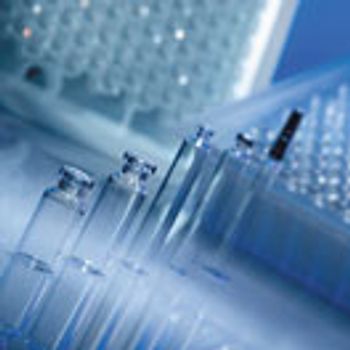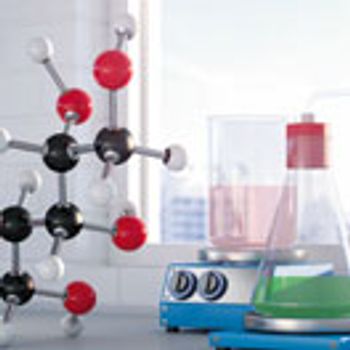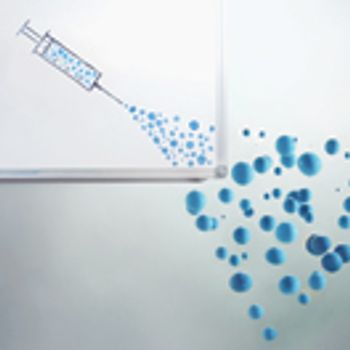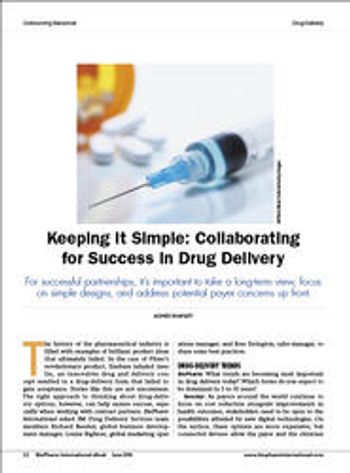
Including next-gen antibodies in pharma pipelines is considered essential for future success.

Including next-gen antibodies in pharma pipelines is considered essential for future success.

Communication and taking the time to develop the process are key to successful transfer and scale up of biologics

The investment will be used to advance Nemaura’s R&D programs, which include liquid vaccines that have been reformulated for administration through the skin using its micropatch drug delivery technology.

Primary packaging and container design reflects a move to patient-friendly formulations and delivery systems.

Researchers test the efficacy of a new polymer that is an alternative to PEG for drugs used to treat type 2 diabetes.

The baculovirus-insect cell system can produce large quantities of complex protein in a short period of time.

This report describes the first known attempt at quantifying the success of such processes in inducing nucleation on a 56–m2 freeze dryer operating at a load of 195,960 vials.

Avecia is adding drug substance capacity at its Milford, MA manufacturing site.

The study in 48 healthy adults will assess the safety and immunogenicity of a prime-boost regime of two different intranasal doses of the RSV vaccine, SynGem.

Interactions between biologic drug products and the components of prefilled syringes can cause protein aggregation, but there are alternative materials that can help mitigate this problem.

Prefilled syringes for commercial supply of the etanercept biosimilar will be produced at Catalent’s Brussels facility in Belgium.

A new study proposes a new way to potentially treat congenital diseases in utero.

High-purity low-endotoxin sugars improve robustness and stability of protein formulation and improve drug product quality.

Multiparticulates are increasingly used due to their flexibility in providing controlled-release, fixed-dose combinations, ease of taste-masking, and suitability for pediatric applications

Challenging molecules and markets are driving the development of new solutions for drug delivery.

Steep price increases for a popular drug have created patient and Congressional backlash.

Amgen discussed the drug-delivery approaches to two of its biologics in a recent second-quarter earnings call.

A new study examines the oral delivery of protein drugs in plant cells and hypothesizes that the cold storage and transportation of biologics could someday be eliminated.

The authors present an overview of the types of RNA-based therapeutics in existence and their optimal methods of manufacture, purification, formulation, and delivery.

For successful drug delivery partnerships, it’s important to take a long-term view, focus on simple designs, and address potential payer concerns up front.

The wearable devices for the delivery of biologic products are now being manufactured and will be tested in clinical trials in the near future, according to the company.

The collaboration will provide GMP manufacturing ahead of future clinical studies.

A new study in Nature Communications explores how to remove the bulk of the soaps that are added to injectables to make hydrophobic drugs more soluble.

The company’s method reduces the time required to crystallize antibodies from weeks to one day.

MilliporeSigma expands its Carlsbad, California-based GMP capacity for viral and gene-therapy products by nearly 90%.